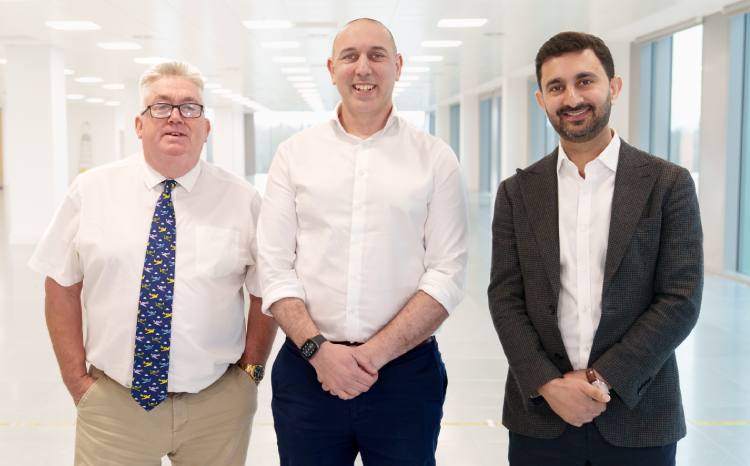Enter the CCG: asks a simple question
- 20 July 2016

I came across an interesting problem recently, while researching my column on Patient Online.
I needed the answer to a simple, precise question: “Will displaying the full-text version of the primary care patient record be a statutory duty for practices in the future? If so, what are the exact targets and dates?”
Googling ‘Patient Online full text’ led me to NHS England’s website. “Patients have been telling us that they are ready and want to take more control of their own health and wellbeing. Digital technology has the power to change the relationship between patients and their GP practice…”
No, that’s not what I want. I don’t want a self-congratulatory epistle from NHS England – I want a specific answer to a specific question.
So I tried ‘Patient Online full text 2017’ instead. "Patients have been telling us that they are ready and want to take more control of their own health and wellbeing. Digital technology has the power to change the relationship between patients and their GP practice…"
Now, I’m starting to get cross. My article has to be submitted within 24 hours and I need some precise facts. So I Google a whole set of alternative search words, without success. Significantly, as soon as I introduce the word ‘target’ into the search string, it turns off all hits on the NHSE website.
So I try the NHS England website search engine itself. "Patients have been telling us that they are ready and want to take more control of their own health and wellbeing…"
I’m going to scream. Were I a busy practice manager, I’d be throwing things at the computer by now. No matter what she tries – to find information that is supposed to be critical to the future of her practice – she can’t see what she is after.
It’s not until ten days after the article is published that I finally get a definitive answer — from a combination of personal contacts, the local medical committee, the clinical commissioning group’s IT consortium, and the BMA’s Joint GP IT committee.
It turns out that, despite all the hype, there is no statutory target for the level or type of use of Patient Online.
The only statutory requirement I’ve come across so far is that practices have a contractual duty to turn on Patient Online at practice level. The remaining ‘targets’ appear to be smoke and mirrors, however laudable their underlying aims.
A pattern emerges
My Patient Online question was just one of many specific questions I’ve asked about NHS plans over the past few years. Frequently, it’s been impossible to obtain a clear answer.
Either, the essential information is absent, or else has been buried under a huge amount of irrelevant verbiage and self-congratulatory detritus. I have come to the conclusion that the response: ‘It’s on the website’ is about as helpful as: ‘The cheque’s in the post.’
It shouldn’t be like this. Front-line NHS staff are pressed for time. They need concise answers to core questions. So why the problems? It seems to me there are two possibilities:
* It’s unintentional — everyone in the central NHS thinks the information is there and is genuinely surprised that clinicians and practices either don’t know it, or can’t find it.
* It’s deliberate – the idea is to create an atmosphere in which no-one can find the answers, then terrorise clinicians and practices into thinking they are required to behave in a particular way, with threats of targets, penalties, league tables and the CQC.
I can see that the benefit of the second option is that managers get the results they want without the bother of having to create legislation or regulations. But I was always taught never to postulate a conspiracy where a cock-up would suffice to explain the situation. So for the moment let’s go with the ‘cock-up’ theory.
The real causes
If it’s not a plot, then it seems to me the real reason it’s so hard to get a simple answer to a simple question is that people have worked too hard (at making something sound important or exciting) or not worked hard enough (at thinking through whether people really want all that other ‘stuff’). As a result:
* The really important information is often buried under a torrent of overwhelming and largely irrelevant detail.
* The really important information is not optimised for search: it’s not gathered into one place; maybe it’s buried at the bottom of a large menu system; perhaps there are no links to the relevant pages; it’s not headed up with appropriate keywords or searchable terms.
* Central managers and comms teams don’t always ask real users what they need to know: so they write for themselves, rather than their audiences.
Added to which, there’s the problem of authors not seeing there’s a problem. After all, they know the answer – why doesn’t everyone else?
The way forward
The solution is simple, and long overdue:
* All NHS bodies should gather target-related information about their specific projects into one concise place on their own website, under a common, uniquely-designated title such as ‘target-matrix’ (being able to Google ‘target‑matrix Patient Online’ would then immediately bring up the answer to my original question.)
* The target-matrix webpages need to state precisely: what the target is; whether it’s a statutory obligation; to whom it applies; when it applies; what exemptions/exceptions are available; the rewards and penalties for hitting/missing the target.
* A useful adjunct would be to rule that no target is enforceable unless it is displayed on a website in this fashion. Each NHS body would then have a real incentive to create their own succinctly-expressed pages of core information.
* It would also be helpful to have a similar (linked) set of pages describing concisely what backing, tools and funding are available to support these targets.
In short, information from the central NHS should be targeted, concise and precise. Less is more.
About the author: Dr John Lockley is clinical lead for informatics at NHS Bedfordshire Clinical Commissioning Group, a part-time GP, and a regular columnist for Digital Health Intelligence's CCIO Network.




